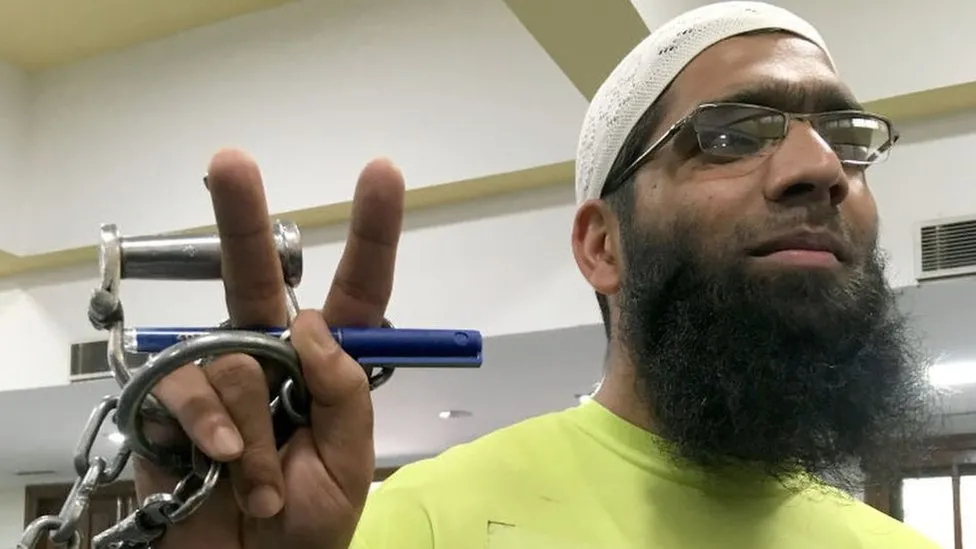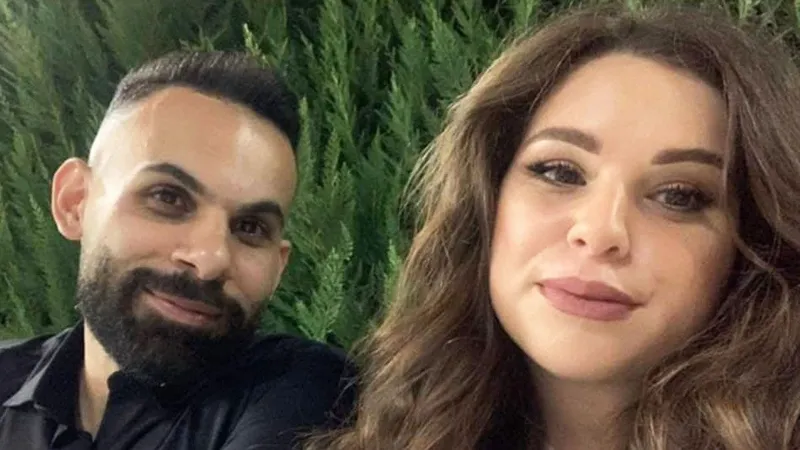Kashmir: Asif Sultan, the journalist who keeps getting arrested
On 29 February, journalist Asif Sultan arrived at his home in Srinagar in Indian-administered Kashmir after being held on remand in jail for more than 2,000 days.

He barely spent five hours with his family before he was called to a local police station, where he was re-arrested.
"We had no idea that he would be arrested again," says Mohammad Sultan, his father.
Asif Sultan, 36, was first arrested in August 2018 and charged under an anti-terror law called the Unlawful Activities Prevention Act (UAPA) which makes it extremely difficult to get bail. Police accused him of helping and sheltering anti-India militants, which he denies.
His colleagues have alleged that he was targeted for writing an article in 2018 about Burhan Wani, a young militant leader whose death in a gun battle with government forces had sparked protests and deadly violence two years earlier.
Militancy is a sensitive issue in Muslim-majority Kashmir, which has been a flashpoint between neighbours India and Pakistan for more than 75 years. Both countries claim the region in full but control only parts of it.
Since 1989, an armed revolt has been waged against Indian rule in the region it controls, claiming tens of thousands of lives. India blames Pakistan for stirring the unrest by backing separatist militants in Kashmir - a charge Islamabad denies.
For decades, journalists in Kashmir have had to tread carefully between the administration and militant groups while doing their jobs. But they say the federal government's crackdown on press freedom has worsened since August 2019 - that's when Prime Minister Narendra Modi's government revoked Jammu and Kashmir's partial autonomy and divided the state into two federally-administered territories.
Since the repeal of the state's special status in 2019, at least five journalists have been charged under the UAPA. Three others have been detained under the stringent Public Safety Act (PSA), which allows detention without charge for up to two years. Some, like Mr Sultan, have been charged and detained under both.
Activists say police use a tactic known as "revolving door arrests", whereby people granted bail in one case are promptly re-arrested under another, effectively prolonging their detention.
The BBC contacted police officials in Kashmir by email but they have yet to respond to our questions about why Asif Sultan was re-arrested, why other journalists have been detained or to allegations that the authorities are cracking down on media freedoms in the region.
Mr Sultan was in a Srinagar prison from August 2018 until April 2022, when a court granted him bail - in that case, the police's key witness against him had refused to identify him as an accused before the court.
But before he could be released, police detained him under the PSA, describing him as a "threat to peace".
He was then transferred to a jail in the northern state of Uttar Pradesh, around 1,500km (932 miles) from his home.
In December 2023, a court in Srinagar quashed the detention under the PSA and ordered the authorities to release him. Despite that, it took 78 days to release him - prison authorities told online portal Newslaundry that the delay was because they had to get "clearance letters" from authorities in Kashmir.
Mr Sultan had just about reached home on 29 February when he was picked up again - this time, his lawyer says, a case had been filed against him under the UAPA related to an incident of rioting that took place in Srinagar's Central Jail in 2019, when prisoners allegedly ransacked the barracks after an argument with prison staff.
"There were around 600 prisoners and he [Mr Sultan] wasn't in the barrack which was allegedly set on fire by some inmates," says his lawyer, Adil Abdullah Pandit, adding that they would file a bail plea soon.
Kunal Majumder, India representative of the Committee to Protect Journalists, says that the pattern of targeting journalists in Kashmir with multiple cases sends a "concerning signal" about the government's stance on press freedom.
"By repeatedly arresting journalists on various charges, often after they've been granted bail on previous ones, it suggests a systematic effort to intimidate and suppress critical voices," he said.
Even though they have been living in despair for years, Mr Sultan's father says there is always "light at the end of the tunnel".
"There is nothing serious in the case. We are hopeful that we will see him again soon," he said.
-bbc






